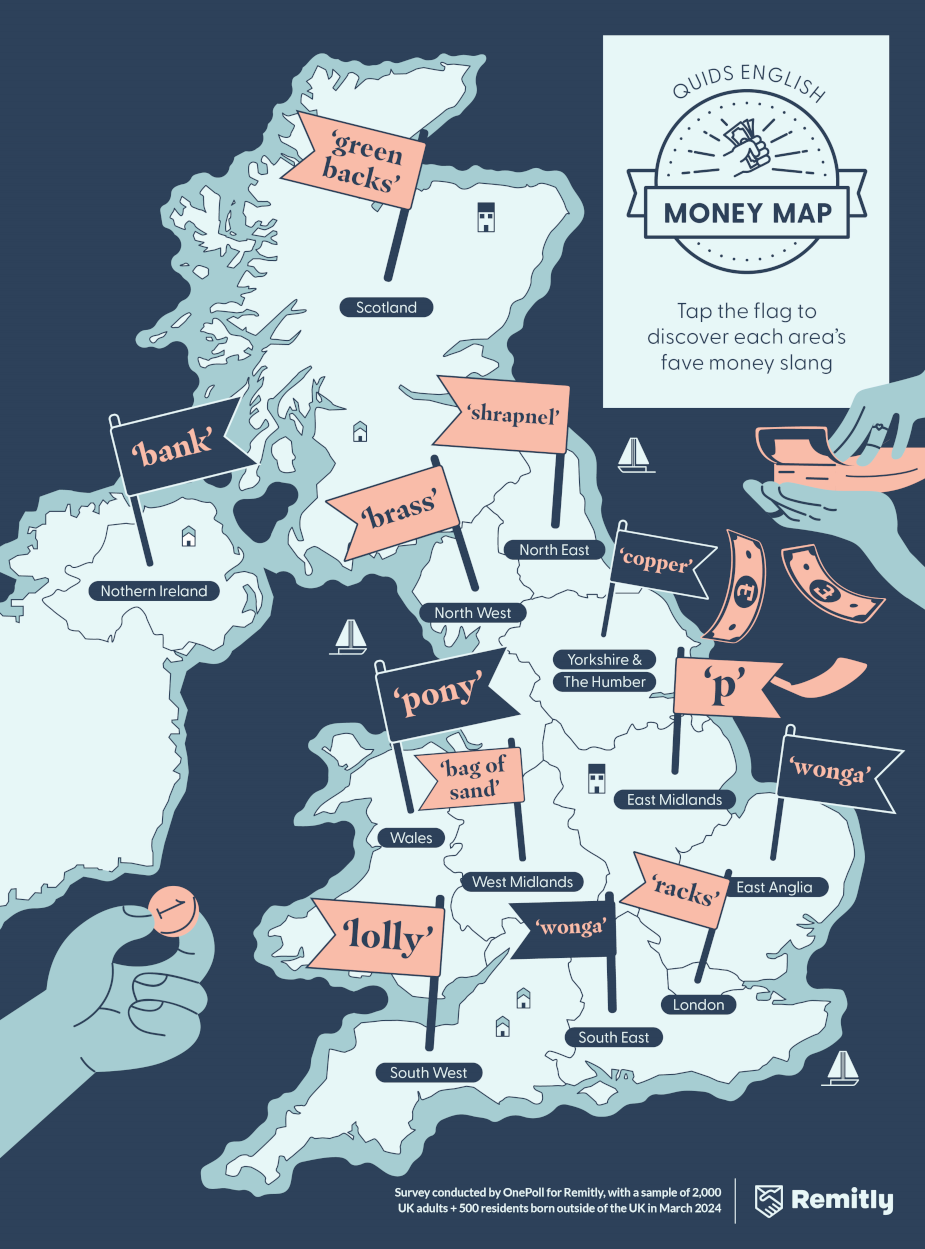Navigating the language of money – especially when English isn’t your first language – can be overwhelming, which is why Remitly -Global, Inc. a trusted provider of digital financial services that transcend borders – has launched a campaign to decode 25 of the most common and confusing ‘Quid’s English’ phrases. Curated by Zeno London, this innovative initiative addresses the widespread confusion surrounding financial terms and slang, which has potentially cost UK residents an estimated £26 billion over their lifetime.
Bridging the Financial Literacy Gap
Remitly surveyed 2,500 individuals, including 500 adults who did not speak English as their first language, across the UK, unlocking fascinating insights about financial literacy. The poll found that more than three fifths (65%) of UK residents struggle with understanding everyday financial terms, which is leading to a third (36%) of respondents losing an average of £1,366 during their lifetime. Among the terms most likely to throw people off are APR (18%), compound interest (17%) and variable interest rate (14%).
Individuals living in the UK who speak English as a second language face greater challenges with 40% expressing regret over financial agreements compared to 34% of native speakers and almost a quarter (23%) ended up paying more for something than they had previously expected, compared to less than a fifth (16%) of native English speakers.
Quid’s English Glossary
To help demystify the confusion that comes with discussions about money, Remitly created the Quid’s English Glossary. The online glossary contains 25 confusing money phrases and slang terms, whether you’re spotting a mate a few ‘spondoolies’ or opening a savings account that offers ‘compound interest.’ By helping to increase financial literacy, Remitly aims to promote financial inclusion and improve outcomes for individuals with cross border financial services needs.

Remitly’s research also highlighted distinct preferences in language and abbreviations across the UK, from location to generation with geographical variations being captured in visual map:
- A North-South divide emerged for certain phrases: just 27% in London describe their cash as ‘readies’, compared to 44% Manchester. Likewise, 33% in the capital have used the term ‘wonga’ – rising to 46% in Newcastle.
- There’s a stark contrast between generations when it comes to the slang they use: Boomers and gen x are most likely to use ‘dough’, ‘bucks’, and ‘tuppence’. Whereas Millennials and gen z will use phrases like ‘Gs’, ‘bags’, and ‘cheddar’ in comparison.
- There is confusion amongst the younger generation when it comes to describing certain amounts of money: 90% of gen x’s and 84% of Millennials either didn’t know the meaning or incorrectly guessed ‘bluey’ is used to talk about £5, compared to 62% of boomers.
Danielle Treharne, VP of EMEA and APAC at Remitly comments, “Moving to a new country presents unique challenges, especially when it involves navigating the complexities of new financial systems and learning new financial slang and terminology. The learning curve can be daunting, even costly, and it can often create barriers to accessing essential financial services.
At Remitly, we’re constantly looking for ways to improve our customers’ experience and to better understand their challenges. We believe in providing financial education and literacy resources that address common barriers – which is what inspired the launch of Quid’s English. We hope this will help promote financial inclusion and individuals with cross border financial services needs.”
For more information about Remitly and the Quid’s English glossary, visit here.





